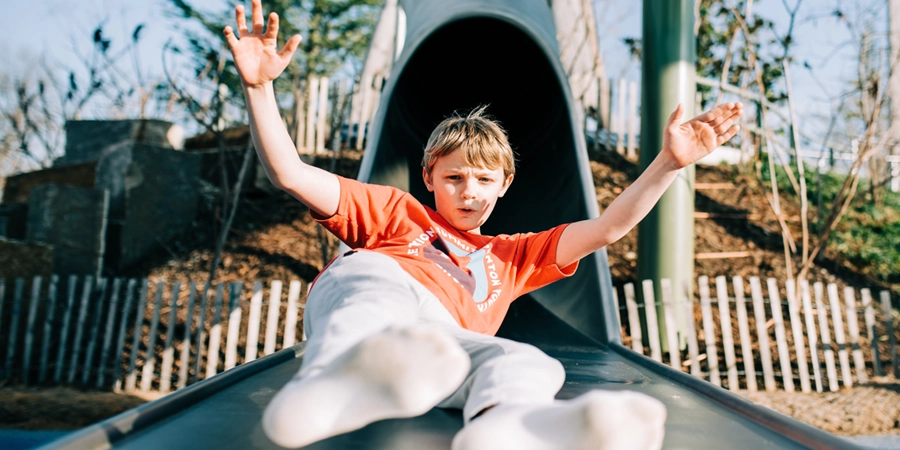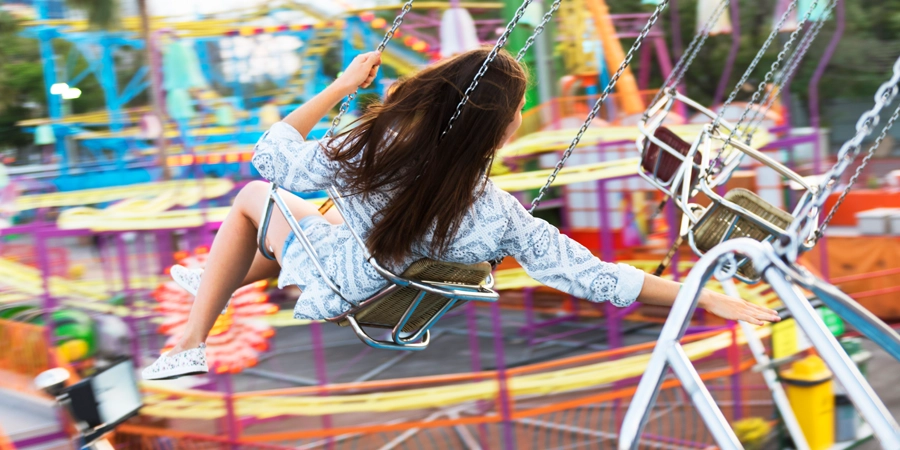Child Amusement Park Injury Lawyer
Amusement parks are wonderful places for families to enjoy a day of fun together. Rides, games, and shows abound, and many of these events and activities are open to everyone. Certain high-speed or potentially hazardous rides do have restrictions regarding the height, age, or health-status of riders. When park workers fail to enforce these rules, when equipment is faulty or poorly maintained, or when children become separated from their parents, child injuries may nevertheless result.

If your child has suffered an amusement-park injury due to a defective product or someone’s negligence, you may be entitled to compensation for your child’s injuries from those responsible. No child should be forced to endure unnecessary physical and emotional trauma as a result of another party’s carelessness. Call child amusement-park injury lawyer Jeffrey Killino today at 877-875-2927 to speak with him about your legal rights and options.
Amusement-park Standards
Though the Consumer Product Safety Commission (CPSC) regulates mobile carnival rides, standards for amusement parks with permanent locations in a particular state are set by those states rather than the federal government. The CPSC has urged the adoption of federal standards for fixed in-state amusement parks as well as those that travel among the states, but some consumer groups have asserted that the present system is superior. The International Association of Amusement Parks and Attractions, for example, has opined that state officials are in the best position to determine which standards are required for their individual states.
Who is to blame for your child’s suffering?
When families visit amusement parks, they expect to spend a fun-filled day together. When a tragic injury-inducing incident occurs, however, a joyful time immediately converts to a physically and emotionally painful experience for the victim and the victim’s family. Lack of adequate restrictions, under-trained workers, understaffed games and rides, and poorly maintained equipment all play roles in harmful and scarring amusement-park injuries.
Negligence on the part of park owners and managers may account for all of the above, so that an action in negligence may be brought against all individuals and entities involved for injuries resulting from that negligence. Parks may opt out of scheduled maintenance or full-staff training, for example, in order to save time and money. Compromising visitors’ safety in this manner may lead to legal liability on the part of those who make such decisions.

The Law Related to Amusement-park Injuries
The law of premises liability covers liability for most amusement-park injuries. In addition, injuries caused by a product’s defect, such as a defect in a ride or other product found in an amusement park, may be governed by product-liability law.
Premises Liability
Premises liability law determines which individuals or entities are responsible for injuries related to the condition or use of a building, land, or other premises. Some states assign a duty of care to amusement-park owners to make the park reasonably safe for anyone who uses it, while others assign a duty of care only to people who were admitted to the park as paying or non-paying “invitees.”
Amusement-park injuries generally occur on rides or on the grounds themselves. If an accident occurs on park grounds and the park’s inadequate maintenance is found to have been a cause of your child’s resulting injuries, the park may be held liable in negligence for the injuries sustained.
In order to establish such negligence by the park or its employees, your attorney will need to show that the defendant violated its duty of care by failing to ensure that the grounds were free of unsafe conditions.
Premises liability for accidents occurring on amusement-park rides may be assigned to several individuals or entities, depending upon the circumstances of the particular accident. To establish liability on the part of any entity or individual, the plaintiff will be required to show that the defendant violated a duty of care owed to the plaintiff by failing to properly inspect and maintain equipment, for instance, or by failing to ensure that a child was safely strapped into a ride. The plaintiff will also need to establish that the defendant’s failure to meet its duty of care was a cause of your child’s injuries and that your child suffered legal damages as a result of those injuries.
Product-liability Actions
Liability may also be assigned to the manufacturer of a ride under products-liability law if a defect in the ride’s manufacture or design is found to have been a cause of the accident. This is an action distinct from one brought pursuant to premises liability law and is often maintained as an action in strict liability.
The law of strict-liability may vary from one jurisdiction to another. Your attorney will determine in which jurisdictions you may file an action and the benefits or disadvantages of the laws governing those jurisdictions in relation to your particular case.
Many federal courts follow the Restatement (Third) of Torts for strict-liability actions, which may allow you to recover injuries sustained by your child as a result of an accident caused by a defect in an amusement-park ride, even if your child was only a bystander as opposed to a passenger on the ride. A strict-liability action brought by a bystander who was injured by a defective ride may not be allowed, however, in a state court that still follows the Restatement (Second) of Torts.
Contact Us
If your child has been injured while at an amusement park because of company negligence or a defective product, you may be able to recover damages for the injuries your child has suffered. By taking legal action, not only do you gain the justice your family deserves, but you also help prevent similar accidents from occurring to innocent children in the future. Contact child amusement- park injury lawyer Jeffrey Killino today at 877-875-2927 to discuss your legal options.




